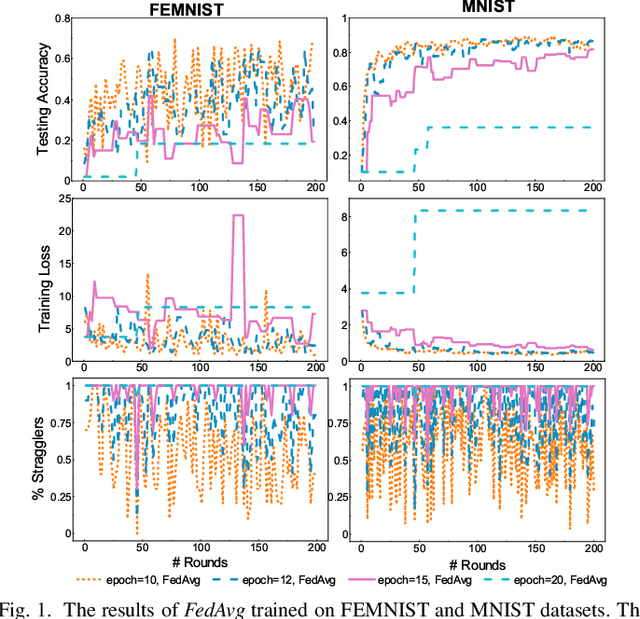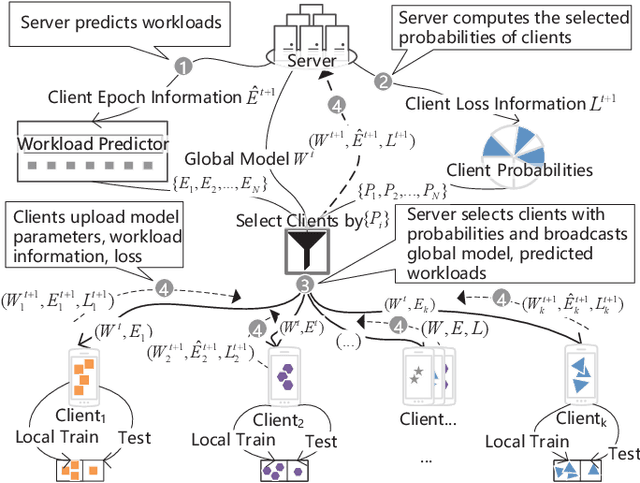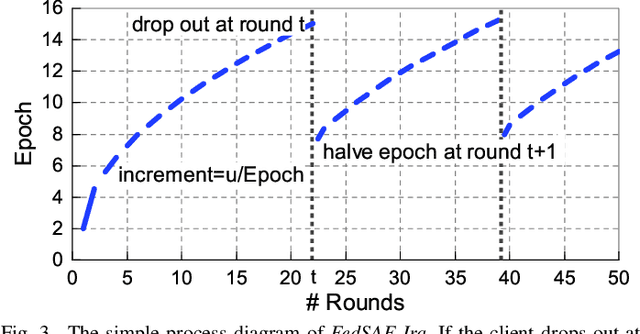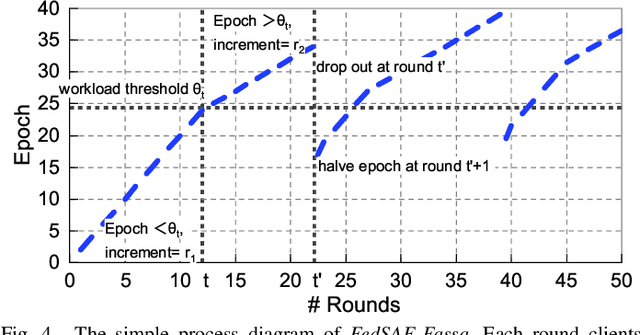FedSAE: A Novel Self-Adaptive Federated Learning Framework in Heterogeneous Systems
Paper and Code
Apr 15, 2021



Federated Learning (FL) is a novel distributed machine learning which allows thousands of edge devices to train model locally without uploading data concentrically to the server. But since real federated settings are resource-constrained, FL is encountered with systems heterogeneity which causes a lot of stragglers directly and then leads to significantly accuracy reduction indirectly. To solve the problems caused by systems heterogeneity, we introduce a novel self-adaptive federated framework FedSAE which adjusts the training task of devices automatically and selects participants actively to alleviate the performance degradation. In this work, we 1) propose FedSAE which leverages the complete information of devices' historical training tasks to predict the affordable training workloads for each device. In this way, FedSAE can estimate the reliability of each device and self-adaptively adjust the amount of training load per client in each round. 2) combine our framework with Active Learning to self-adaptively select participants. Then the framework accelerates the convergence of the global model. In our framework, the server evaluates devices' value of training based on their training loss. Then the server selects those clients with bigger value for the global model to reduce communication overhead. The experimental result indicates that in a highly heterogeneous system, FedSAE converges faster than FedAvg, the vanilla FL framework. Furthermore, FedSAE outperforms than FedAvg on several federated datasets - FedSAE improves test accuracy by 26.7% and reduces stragglers by 90.3% on average.
 Add to Chrome
Add to Chrome Add to Firefox
Add to Firefox Add to Edge
Add to Edge